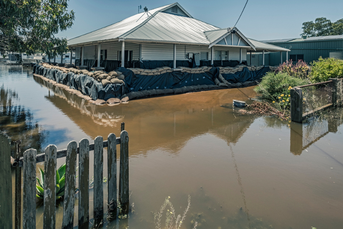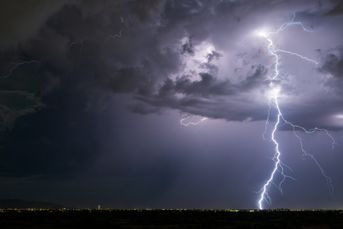From $42B to less than $1B: How Asia’s once richest man lost it all

Evergrande’s Hui Ka Yan has lost most of his fortune and his freedom.
Hui Ka Yan has already lost his freedom.
Now, China Evergrande Group’s founder is no longer a billionaire.
Hui’s net worth has fallen to $979 million, according to the Bloomberg Billionaires Index, with shares of his debt-laden real estate firm trading at just HK$0.24 (3 cents) each. Shares of China Evergrande have dropped 86% since its trading resumption in late August.
While Hui’s wealth may seem trivial in the context of a police investigation into alleged crimes by the property tycoon, the value of his assets is of keen interest to creditors seeking to limit losses from one of the biggest corporate collapses in Chinese history. The slump is also another illustration of how hard Hui has fallen after riding the nation’s real estate boom for more than a decade.
Once Asia’s second-richest man and worth $42 billion at his peak in 2017, Hui’s wealth has plummeted 98% since then, according to Bloomberg’s wealth index. The founder is now under police control, leaving his empire in limbo with no clear restructuring plan in sight.
A further test later this month has the potential to almost wipe out his fortune. The world’s most indebted developer will face an Oct. 30 court hearing in Hong Kong over a petition to liquidate the firm.
If a winding up order is made, liquidators will be appointed to convert Evergrande’s assets into cash for the benefit of all creditors, according to Jonathan Leitch, a partner at Hogan Lovells in Hong Kong.
“Potentially, creditors end up owning the business and shareholders get wiped out,” said Leitch. Still, if Hui is kept onboard to see through a restructuring, he may get to keep some equity as an incentive, the lawyer said.
In a further twist, Hui’s wife Ding Yumei was listed as a third-party independent in an August filing, hinting at a divorce and separation of assets.
Ding owns a 6% stake in Evergrande, worth some $24 million, through a British Virgin Islands vehicle wholly owned by her since the company’s listing in Hong Kong in 2009. Previously, her stake was credited as Hui’s spousal interest in Evergrande’s filings, while it now lists Ding as a separated beneficial owner. Through this stake, Ding should have collected more than $500 million in cash dividends over the years. It’s unknown how Hui split assets with Ding.
A media representative for Evergrande didn’t offer a comment when reached by Bloomberg.
Hui has been pledging assets after he was urged by Chinese authorities to use his personal properties to pay debts. One luxury mansion on Hong Kong’s peak linked to him is on the market for HK$880 million after it fell into receiver’s hands. It failed to sell earlier this year after bids fell short of the creditor’s target.
Learn more about reprints and licensing for this article.








